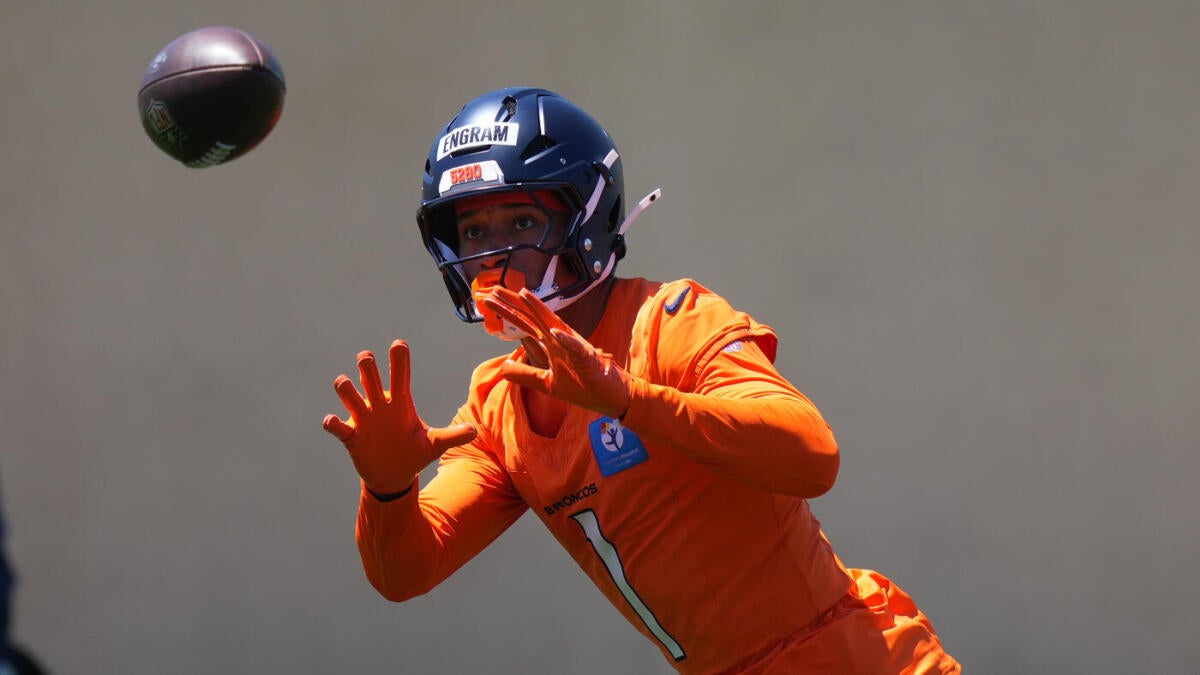The Cultural Implications of Evan Engram’s Departure from the Jaguars
Introduction: A Roster Move with Deeper Meaning
Evan Engram’s transition from the Jacksonville Jaguars to the Denver Broncos transcends the typical narrative of a player changing teams. His departure has sparked a broader conversation about team culture in professional sports, particularly within the NFL. Engram’s subtle yet pointed remarks about the differences between the two organizations have raised questions about the Jaguars’ internal dynamics and the importance of a positive team environment. This analysis explores the cultural implications of Engram’s departure, examining what it reveals about both the Jaguars and the Broncos, and the broader significance of team culture in professional sports.
Decoding the Subtext: What Engram’s Comments Reveal
Evan Engram has been careful not to openly criticize the Jaguars, but his comments about the Denver Broncos’ team culture have been telling. By highlighting the positive aspects of his new environment, he has implicitly suggested that his experience in Jacksonville was less than ideal. To understand the significance of his remarks, it’s essential to break down what “team culture” entails in a professional sports context.
The Pillars of a Strong Team Culture
Engram’s comments suggest that one or more of these pillars may have been lacking during his tenure with the Jaguars. Whether it was a lack of clear leadership, ineffective communication, or a disconnect between players and coaches, his experience highlights the importance of a strong team culture in professional sports.
The Jaguars’ Challenge: Addressing Cultural Concerns
For the Jaguars, Engram’s departure presents a unique opportunity for self-reflection and growth. While releasing him may have freed up cap space, it also means losing a productive player who had become a reliable target in the passing game. More importantly, it raises questions about the team’s reputation and ability to attract and retain top talent.
The Risk of a Negative Reputation
If Engram’s assessment of the Jaguars’ team culture is accurate, it could deter other free agents from signing with the organization in the future. Players are increasingly aware of the importance of a positive team environment and may be hesitant to join a team with a reputation for internal strife or a lack of support.
The Path Forward for the Jaguars
To address these concerns, the Jaguars must conduct a thorough self-assessment of their internal dynamics. This includes evaluating the effectiveness of their leadership, the quality of communication among players and coaches, and the level of accountability within the organization. Honest answers to these questions will be necessary for the Jaguars to improve their team culture and create a more positive and productive environment.
The Broncos’ Opportunity: Building on a Positive Culture
For the Denver Broncos, Engram’s arrival represents more than just an addition to their roster. It also serves as a validation of their efforts to create a winning environment. His endorsement of the Broncos’ locker room culture can be seen as a testament to the organization’s commitment to fostering a positive team culture.
Strengthening the Broncos’ Culture
The Broncos have an opportunity to build on their existing culture and create a team that is not only talented but also cohesive and unified. By fostering open communication, promoting accountability, and encouraging camaraderie, the Broncos can create an environment where players feel valued, supported, and motivated to perform at their best.
Avoiding Complacency
However, it’s crucial for the Broncos to avoid complacency. A positive team culture requires constant nurturing and reinforcement. The organization must remain vigilant in maintaining a healthy and supportive environment, ensuring that all players feel like they are part of something special.
The Broader Significance of Team Culture in Professional Sports
Evan Engram’s situation highlights the vital role of team culture in professional sports. While talent and skill are undoubtedly essential for success, they are not enough. A positive and supportive team environment can be the difference between a team that performs well and a team that achieves greatness.
The Impact of a Strong Team Culture
The Consequences of a Negative Team Culture
Conversely, a negative or toxic team culture can have devastating consequences. It can lead to player dissatisfaction, infighting, and a decline in on-field performance. It can also damage the team’s reputation and make it difficult to attract and retain top talent.
Conclusion: A Call to Action for the Jaguars and a Reminder for the Broncos
Evan Engram’s departure from the Jacksonville Jaguars serves as a wake-up call for the organization. While his words may have been understated, the message is clear: a positive and supportive environment is essential for success in professional sports. For the Jaguars, this means taking a hard look at their internal dynamics and addressing any issues that may be hindering the team’s progress. For the Broncos, it means continuing to nurture and reinforce their positive culture, ensuring that all players feel valued and supported.
Ultimately, Engram’s situation is a reminder that success in professional sports is not just about talent and skill. It’s also about creating a culture where players can thrive, both on and off the field. The teams that understand and prioritize this will be the ones that consistently compete for championships and leave a lasting legacy. The Jaguars need to do some soul-searching, while the Broncos need to continue on their path, ensuring that their positive culture remains a cornerstone of their organization.











